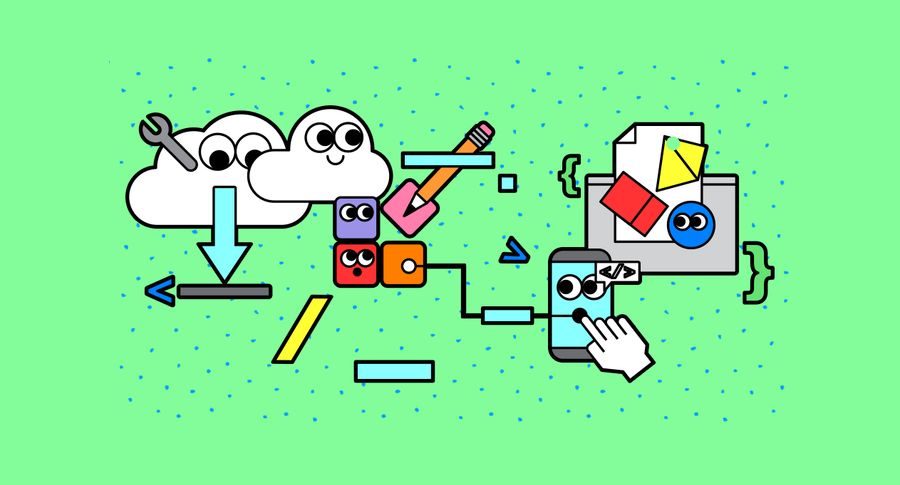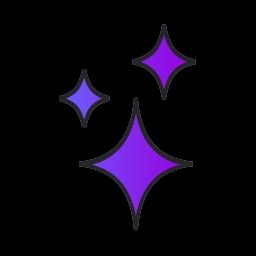Glitch Now Has More Apps than Apple's App Store - 2.5 Million of Them
We're evolving "developer tools" into a creative and expressive platform that everyone can use to create the web. On Glitch, coding with friends is like working together in Google Docs–multiple people can work on the same project at the same time. There's no setup, and you can see changes live on the web as you type.
By radically lowering the barriers to creating with code, our creative community of millions of people has now made more than 2.5M apps. For context, that’s more than Apple’s App Store, though since people create on Glitch by remixing each other’s work, it’s not exactly an… apples-to-apples comparison. 😇
From useful tools that solve problems at work, to VR experiences, smart bots, and apps for important causes, the community on Glitch is creating the cutting-edge of the web.
Apps you'll only find on Glitch #
Take Julius Tarng's "tokimeki-unfollow," it's the perfect app for tidying up your Twitter timeline. Decide whether each person you follow still sparks joy. If not, hit that unfollow button! As Samantha Cole writes in Vice, "if hell is other people, Twitter is a whole other kind of damnation. But after unfollowing 50 people… I can say that at least the meditative process of considering my connections sparked a little joy."
With "nelson" created by Arielle Vaniderstine, you can tailor the perfect playlist to how you're feeling right now. Specify the genre, tempo, popularity, and several more esoteric attributes from the valence to danceability. As The Verge put it, with Nelson you can "make yourself some half-human, half-algorithm cyborg playlists." Or perhaps you're more worried about your secret love of Enya getting out? Then Eric Lewis' "make-all-spotify-playlists-secret" is the app for you.
There are fun apps too, like "webcomicname-mashup". Created by Ravelry co-founder, Casey Forbes, it's an addictive generator for creating your own versions of Alex Norris' 'Oh No' comics. From reflections on our productivity-sapping obsession with gadgets to poignant comments on the state of discussions of identity and gender, the results can be en pointe.
Or maybe you've always wanted to create your own comic, except there's just one problem–you can't draw? Don't worry, the bots have your back. Monica Dinculescu's "magic-sketchpad" uses machine learning to complete your sketches for you.
While Aaron Z. Best's "FoodHype" food trend generator serves up novelty food titles that Food & Wine quipped "are the stuff of meat-sweat-induced fever dreams." A few clicks in and you'll be questioning whether they are actually fake foods or real clickbait headlines.
Of course, folks have created apps that help advance important causes too. Like "congress-tracker" by Jason Crane, which utilizes ProPublica's Congress API to make keeping up with bills and statements by members of Congress on gun violence easier. And Baratunde Thurston, the Emmy-nominated ex-producer of The Daily Show, created "livingwhileblack." It asks whether you can tell which headlines are real, highlighting the phenomenon of white people calling the police on black people simply living their lives.
Used by the Big Names in Tech #
Glitch's community also includes some of the biggest companies in Tech. Google's Material design team launched "material-theme-builder" on Glitch, which you can use to style and remix themeable components and create your own custom version of Material Design. Slack share template apps and tutorials using Glitch to make building bots easier than ever. While the Twitch dev team routinely live stream using Glitch on Twitch.
We're working with partners across industries, not just tech. Like teaming up with Discovery and MythBusters Jr. to transform their science-based TV episodes into interactive apps. Or working with the likes of Questlove, Adam Savage, and the publisher Andrews McMeel on several book launches.
But ultimately, what we're trying to do is enable everyone to create the web. It's easy to forget in this era of Unicorn startups and billion-dollar IPOs that many people got started on the web by tweaking the HTML of a GeoCities page or perfecting the CSS on their MySpace profile. Back then, people were almost as likely to make a web page as read one. Now though, things have changed. Most modern websites all look the same, and people spend almost all their time using just three apps. So it seems more important than ever to remind ourselves that the web is still a thing we can all make, not just something we consume.
We're proud to be enabling creativity with code like no tool has done before, and to be working alongside the most friendly, and thoughtful community on the internet.
We can't wait to see what you all create next❣️

